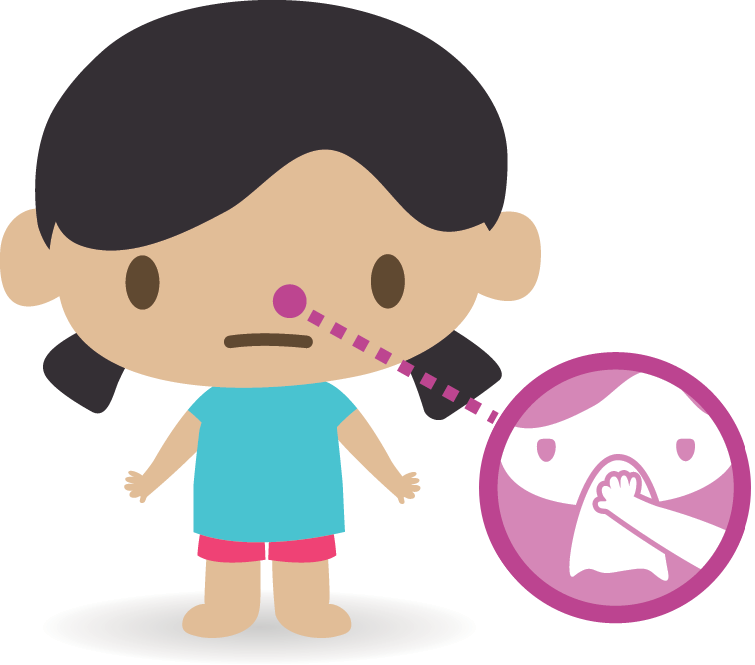
Print / Download Handout: English | French | Arabic | Punjabi
Influenza (also known as the flu) is an infection that can happen in children or adults at any age. It happens more often in the winter months because people spend more time in close contact with one another. Influenza is spread easily from person to person by coughing, sneezing, or touching surfaces.
Because influenza is a virus, it does go away on its own without antibiotics. However, some people can get very sick with influenza, which is why a vaccine has been created. This is available every year, usually starting in October.
Certain children are at higher risk of getting sicker or developing complications from influenza.
Influenza is spread easily from person to person by coughing, sneezing, or touching surfaces. You can protect your children from influenza in two main ways:
Influenza viruses change slightly every year so you need a new influenza vaccine before each influenza season.
People who are vaccinated make antibodies (proteins), which will destroy the influenza virus after the person is exposed to the virus. It generally takes about two weeks to make these antibodies. If you do get influenza after being vaccinated, your symptoms are likely to be milder and last for a shorter time compared with people who were not vaccinated. It’s best to get the vaccine for you and your family as soon as it’s available in the fall to protect you for the rest of the fall and winter months.
For detailed information on the flu vaccine, see these websites:
Symptoms of influenza can be different from person to person. They include respiratory illness with fever, cough, and one or more of the following:
Influenza symptoms usually get better over 2 to 5 days, but the cough and fatigue may last more than a week.
Younger children under 5 years old are at more risk.
The treatment of Influenza is focused on improving your child’s symptoms. While this will help your child feel better, it will not make the virus go away faster.
Some children need to be admitted into a hospital if they get very sick with the influenza. This is usually because of problems with breathing, pneumonia, or dehydration.

 It can be scary when your child is sick. But in most cases, you don’t need to go to the emergency department. If you’re unsure, we’re here to help.
It can be scary when your child is sick. But in most cases, you don’t need to go to the emergency department. If you’re unsure, we’re here to help.
The content provided on these pages is not intended to replace medical advice. If you have concerns about the health of your child, contact your health care provider directly. If your child has an emergency, go to the nearest emergency department or call 911. Alberta Health Services and Project HEAL strive to ensure that all material is correct but will not be held liable for errors or incomplete information contained in these pages.